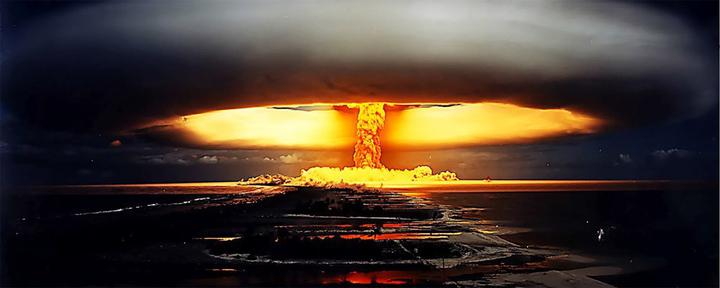Author: Prof. Engr. Zamir Ahmed Awan, Founding Chair GSRRA, Sinologist, Diplomat, Editor, Analyst, Consultant, Advisor, and Non-Resident Fellow of CCG. (E-mail: awanzamir@yahoo.com).
The world stands at a perilous crossroads as nine nuclear-armed states—the United States, Russia, the United Kingdom, France, China, India, Pakistan, North Korea, and Israel—continue to modernize their nuclear arsenals. The Stockholm International Peace Research Institute (SIPRI) has highlighted the ongoing advancements in nuclear weapons technology, posing an escalating threat to global security and stability.
The United States: A Historical and Present Danger
The United States, with its track record of using nuclear weapons during World War II, remains a significant threat due to its continued expansion and modernization of its nuclear arsenal. The US's pursuit of advanced nuclear capabilities not only heightens the risk of a potential nuclear conflict but also sets a dangerous precedent for other nations. This aggressive stance contributes to global instability and encourages a renewed arms race, undermining efforts toward nuclear disarmament and non-proliferation.
Israel: A Fanatic Threat
Israel, often described as a fanatic and extremist nation, possesses a covert yet formidable nuclear arsenal. The lack of transparency and accountability regarding its nuclear capabilities poses a serious threat to regional and global security. Israel's aggressive policies and frequent conflicts with its neighbors exacerbate the potential for nuclear escalation. The international community's failure to address Israel's nuclear ambitions only fuels further tensions in an already volatile Middle East.
India: Ambitions Under Extremist Leadership
India, under the leadership of Prime Minister Narendra Modi and the Bharatiya Janata Party (BJP), presents a growing nuclear threat. Modi's tenure as Chief Minister of Gujarat during the 2002 massacre of Muslims has raised concerns about his extremist and fascist inclinations. India's rapid development of nuclear weapons, supported by Western powers aiming to counter China's influence, poses a direct threat to its neighbors. Countries such as Pakistan, Bangladesh, Myanmar, Nepal, the Maldives, and Sri Lanka could become victims of India's enhanced defense capabilities, driven by expansionist motives and aggressive designs.
The West's support for India's acquisition of advanced and lethal weapons further destabilizes the region. By bolstering India's military power, the West inadvertently fuels an arms race in South Asia, heightening the risk of nuclear conflict and endangering millions of lives.
Other Nuclear Powers
Other nuclear powers, unlike the United States, have never deployed nuclear weapons in conflict, demonstrating a more restrained and sensible approach in times of war. Despite possessing significant nuclear capabilities, these nations have historically refrained from utilizing them, thereby posing a lesser threat to global peace.
China, in particular, stands out for its commitment to peaceful resolutions. Despite its formidable military strength, China has consistently advocated for the peaceful resolution of disputes and differences. Rather than leveraging its nuclear arsenal to intimidate adversaries, China has prioritized development and international collaboration. By setting aside territorial and political disputes, China has focused on fostering economic growth and peaceful cooperation with other countries. This approach not only enhances global stability but also promotes a vision of development that benefits all parties involved.
The Arms Race and Its Global Implications
The modernization and expansion of nuclear arsenals by these nations have profound implications for global security. The arms race fosters an environment of mistrust and competition, where the pursuit of superior nuclear capabilities takes precedence over diplomatic solutions and peaceful coexistence. This dangerous trend undermines international efforts to promote disarmament and non-proliferation, leaving the world vulnerable to catastrophic consequences.
In regions like South Asia, where poverty remains a severe challenge, the arms race has particularly detrimental effects. Resources that should be allocated to basic health, education, and development are instead diverted to military expenditures. This misallocation of funds perpetuates the suffering of the masses, depriving them of essential services and opportunities for a better life. The investment in arms over public welfare exacerbates poverty and hinders progress, highlighting the urgent need for a shift in priorities towards human development and peaceful coexistence.
Pakistan's Stance: Advocating for Stability
Pakistan, while maintaining its nuclear deterrence, advocates for regional stability and peace. It emphasizes the need for dialogue and confidence-building measures to address security concerns. Pakistan's narrative focuses on the principle of strategic restraint and responsible nuclear behavior, highlighting the dangers posed by the aggressive policies of its neighbors. Genetically, Pakistan is a peace loving nation and have no aggressive motives against any other country, But is compelled to keep its minimum deterrence for safe guard purpose only.
Conclusion
The ongoing modernization of nuclear arsenals by the world's nine nuclear-armed nations represents a significant threat to global peace and security. In a worst-case scenario, the existing stockpiles of nuclear weapons possess the capability to eliminate all of humankind, resulting in an unparalleled mega-disaster. The aggressive stances of the United States, Israel, and India, in particular, exacerbate regional tensions and significantly increase the risk of a nuclear conflict.
To avert such a catastrophe, it is imperative that the international community takes proactive measures. Diplomacy and dialogue must be prioritized over militaristic posturing. Nations should engage in sincere negotiations aimed at disarmament and the reduction of nuclear stockpiles. Stringent non-proliferation measures must be enforced to prevent the spread of nuclear technology and weapons.
Moreover, fostering mutual understanding and trust among nations is crucial. This can be achieved through regular international summits, confidence-building measures, and transparent communication channels to address grievances and resolve conflicts peacefully.
Investing in peacebuilding initiatives, promoting economic cooperation, and supporting international organizations dedicated to maintaining global security are essential steps. By working together to strengthen these frameworks, the world can move towards a future where the threat of nuclear war is significantly diminished.
The best way to avert a nuclear war or World War III is through a combination of robust diplomatic efforts, adherence to non-proliferation treaties, and the promotion of global cooperation and development. It is only through such comprehensive and committed actions that we can ensure the survival and prosperity of humanity.
(ASIA PACIFIC DAILY)
